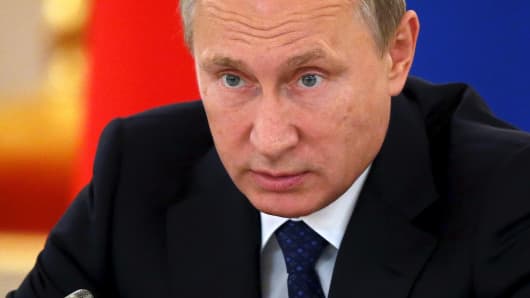Putin about Syria
he widely accepted narrative for Russia's recent increased involvement in Syria includes their longtime support of Syrian President Bashar al-Assad as well as the geopolitical vacuum left by a retreating U.S. But the real reason can be summed up in one word: oil.
No doubt, U.S. retrenchment has opened the door for Russian adventurism in the Middle East. But the short-term impact will be higher oil prices.
With Russia and allied Iran increasing their presence throughout the Middle East, ostensibly to combat ISIS, Saudi Arabia stands with a large target on its back. Iran has been recognized by the Saudi leadership as an existential threat. Saudi Arabia's principle tool to counter Iran adventurism has been increasing oil production, which pressures the price of oil and keeps the Iranian economy weak
Iran, of course, has not been the only player hurt by lower oil prices. The Russian economy has been hammered by the one-two punch of sanctions imposed from their involvement in Ukraine and the drop in oil prices.
Now with Russia's growing presence in Syria, a partnership with Iran and a retreating U.S., Saudi Arabia is faced with a new and unfriendly world. Without confidence that the U.S. will have its back, Saudi Arabia may feel compelled to bend to Russia and Iran's inevitable pressure to reduce oil production. And this will lead to greater pressure for all OPEC countries to reduce production and support higher prices.
The crisis in Syria is not contained to Syria or to the Middle East and the impact of U.S. retrenchment will be felt in the West sooner than later.
Commentary by Burdin Hickok, an adjunct instructor at New York University in finance and economics. Following a career as a bond salesman at Lehman Brothers and other New York investment banks, Hickok served as an economic advisor for the State Department and Iraqi government in Kirkuk, Iraq.
The Source


No comments:
Post a Comment